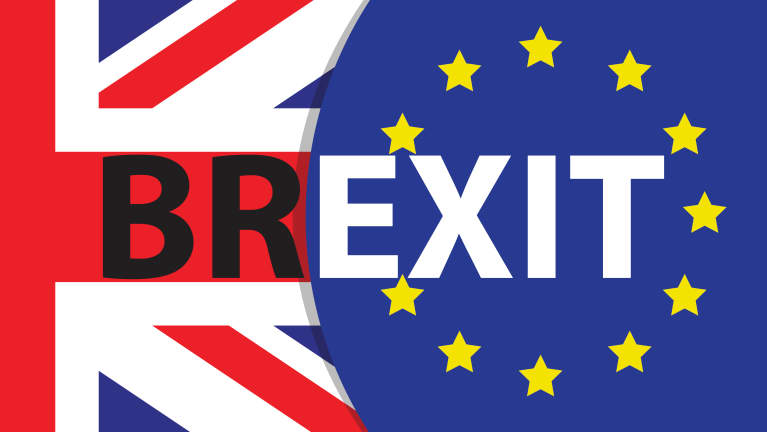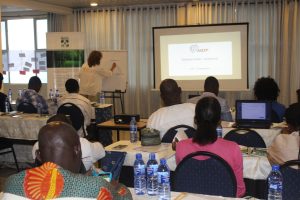Great Britain is one of Ghana’s strategic development partners and our political partnership is over 200 years old. For this reason and Britain’s own reputation, as a support for international development, it needs to continue supporting Ghana to reform the forest sector. Britain, needs to rump up support to ensure Ghana delivers legally verified lumber and timber products to the market and to improve domestic timber trade.
This support is very crucial now, more than ever, because of Brexit. What the world least expected happened – in mid-2016, the UK, in a national referendum, voted to leave the European Union. The implications of this action taken, in March 2017, continue to unfold. Nevertheless, the exact full implications are not yet comprehended. What we seem sure of however is that UK will no longer fund the European Union nor the Commission in present and future Voluntary Partnership Agreements. What remains uncertain is what the UK intends to do with existing VPA’s that they continue to champion.
Most FLEGT-VPAs have an EU member state, besides the EU Commission, supporting their VPA. In the cases of Ghana, Liberia, Cameroon, Indonesia and a few other countries it has been the UK providing political, financial, and to some lesser extent political support to drive the process. Without such support, most VPAs would not have reached the state that they have reached now.
In Ghana, the UK Government has funded the electronic tracking system which provides live data reconciliation and tracking functions. This is a major game changer in the timber processes. This is because it will be sealing many loopholes in a paper based system, which is widely known to be easily tampered with. This new tracking system is not only taking the movement to timber for legal allocation to trade, but is also tracking who is entering information into the system at which point and making sure that numbers add up.
Besides the tracking system, the UK Government has been supporting with other logistics such as hand-held devices, power facilities and other such useful things to address the challenges of lack of power and data connectivity which was identified as a major issue in the 2014 Joint Assessment of Ghana Readiness to Issue FLEGT Licences.
When CSOs raised the need for a transparency framework for Ghana, to make up for the absence of a Transparency Annex, government’s initial response was not too positive. The response from the DFiD representative, however, gave government pause to think. The representative stated that the list presented by civil society was by no means the longest list seen and that other countries by the VPA have been required to provide much more. This comment was defining and pivotal in the transparency discussions, and much progress has been made by government since then.
The DFiD has also funded International NGOs and Local NGOs such as Fern, ClientEarth, Civic Response and several other local organisations which have continued to champion the civil society work on VPAs. Among such projects include the ‘seat at the table’, ‘strong seat at the table’ Implementing FLEGT-VAP, Improving forest governance, and the 2015 round of FGMC calls.
These projects have supported the building of local community capacity to appreciate forest laws, the role of communities in forest management and their rights in forests. UK funding has supported forest forum processes from 2009 till 2015 which reached out to over 43 districts and over 250 forest communities in Ghana. These forest forum processes and support for campaigns and activities of Forest Watch Ghana has ensured good quality inputs from local communities and different civil society groups into the policy reform 2012 Forest and Wildlife policy. Furthermore, the support of UKAid to the work of the Legal Working Group in Ghana, convened by ClientEarth and Taylor Crabbe Initiative significantly improved the legal framework of the forest sector for civil society, government and for the Parliamentary Select Committee on Forests.
The fact remains that with the different works done by NGOs focusing on governance, civil society has demonstrated great value, cohesion, co-ordination and ability to more constructively engage with governments. I strongly aver that when history of Ghana’s forest sector between 2005 and 2016 is being recounted and donors like JICA, DANIDA, RNE and the EU Commission are being recognised, UKAid will surely have a prominent place on the wall of fame.
It is understandable now that the global political landscape has significantly altered since the Brexit vote in Mid-year 2016. It is understandable that the refugee crisis and other economic constraints are real constraints in Europe. These notwithstanding, it would be very unfortunate for the UK to abandon its role as a champion and leader in tackling illegal logging, deforestation, and more broadly climate change. It would not be good for history to recount that when the going got tough, UK government recoiled into its shells, cutting off the legs of positive and focused civil society, and ultimately killed the momentum for forest governance reform. It is in adversity that true leadership demonstrates it mettle.
By: Samuel Mawutor|Civic Response




